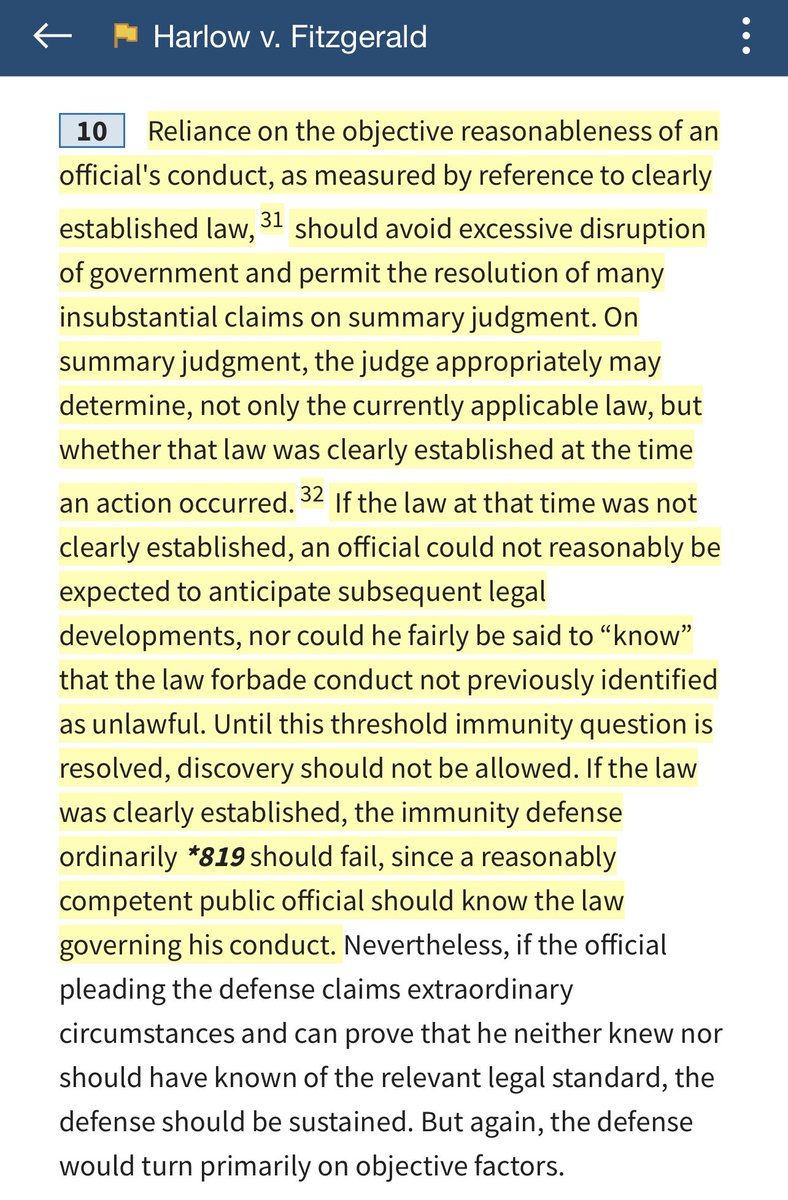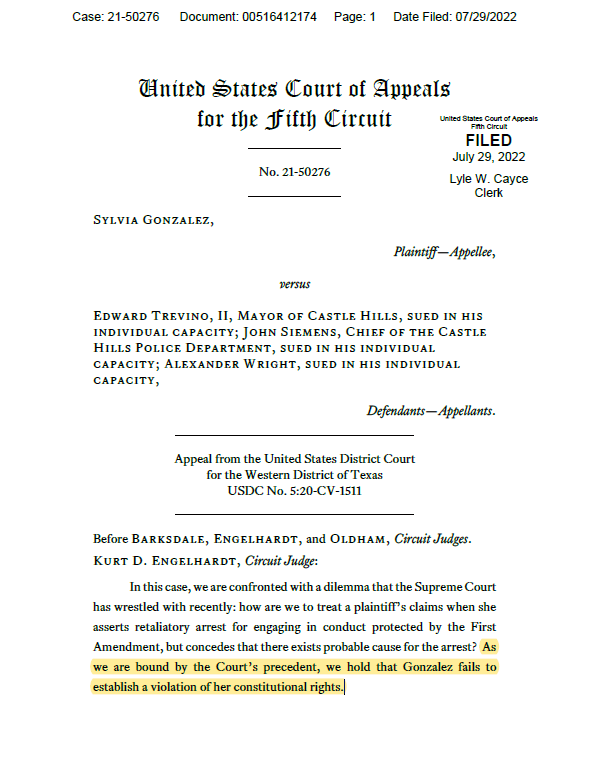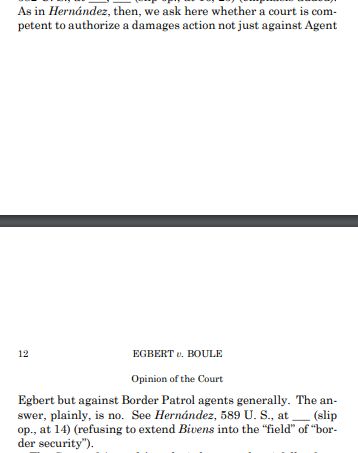
#SCOTUS🧵In 2014, police task force members misidentified James King as a criminal and brutally beat him. The officers never identified themselves, so bystanders believed they were witnessing a murder and called 911. Today, @IJ filed cert (for the 2nd time). #AppellateTwitter 1/ 

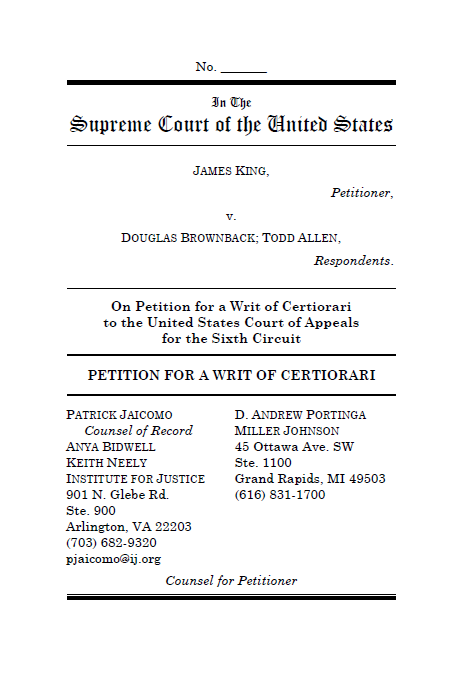

Litigation for the past 9 years(!) has been a case study in immunity doctrines, and has already been to the U.S. Supreme Court in Brownback v. King. I'll walk through that, but lets start with James telling his story: 2/
To begin, Mich. prosecutors charged *James* with multiple felonies. So at 21 he had to stand trial and face decades in prison. If the gov't can get a plea or conviction, most constitutional claims against police die. Thankfully, a jury acquitted James (and he refused to plea). 3/ 

Illustrating the cozy relationship between police and prosecutors, the prosecutor who tried James to prevent him from being able to sue the police was, himself, later saved by police, who covered up the prosecutor's DUI. Or tried to . . . 4/
fox17online.com/2017/09/13/cit…
fox17online.com/2017/09/13/cit…
Anyhow, James sued the task force officers who beat him for violating his #FourthAmendment rights, and he sued the federal gov't under the Federal Tort Claims Act (FTCA) for MI torts the officers committed (e.g., battery).
Congress & SCOTUS have made clear you can do BOTH. 5/

Congress & SCOTUS have made clear you can do BOTH. 5/

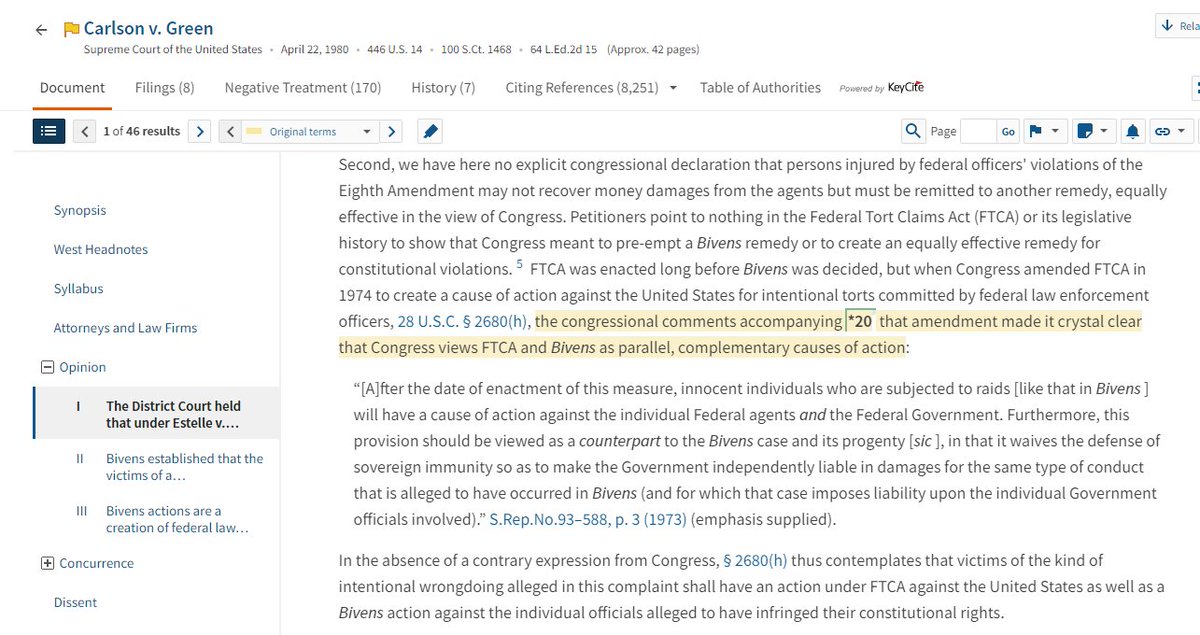
The Dep't of Justice defended the officers, moving to dismiss King's case based on - you guessed it - #QualifiedImmunity.
And the district court eagerly granted QI across the board: federal QI for the constitutional claims and Michigan QI for the torts. 6/

And the district court eagerly granted QI across the board: federal QI for the constitutional claims and Michigan QI for the torts. 6/


King appealed to the 6th Cir., which reversed. The opinion roundly rebuffed the officer's claims for #QualifiedImmunity, explaining that they violated James's clearly established #FourthAmendment rights at every stage of the interaction. 7/
opn.ca6.uscourts.gov/opinions.pdf/1…



opn.ca6.uscourts.gov/opinions.pdf/1…


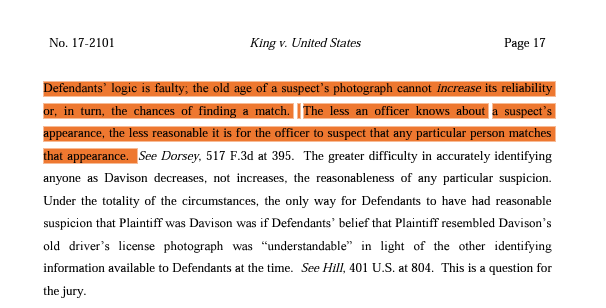

On appeal King narrowed focus to his constitutional claims b/c the district court's grant of Mich. #QualifiedImmunity for the torts created a messy issue over which the circuits were split (see below). The gov't seized on this and argued for another immunity under the FTCA. 8/ 
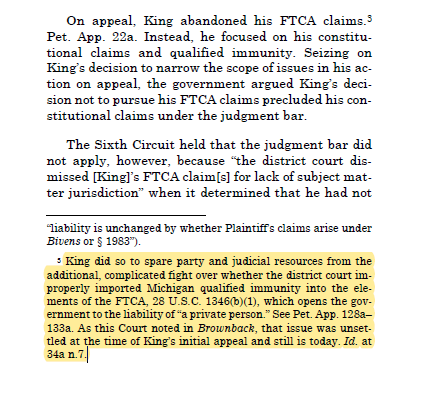
Under this tort immunity, if a victim of federal abuse cannot sue the federal gov't for a state tort—like assault or battery, etc.—he cannot hold the gov't employee liable for a constitutional violation either. Here's how the 7th Cir. said the "Kafkesque" process should work: 9/ 

Tort immunity makes no sense for a bunch of reasons, not the least of which that torts and constitutional claims have different elements and purposes. Also because it has no basis in the FTCA, which does not preclude "claims" in the same lawsuit. So, the 6th Cir. rejected it. 10/ 



Then, the Solicitor General of the U.S. filed cert, asking #SCOTUS to recognize tort immunity. The Court heard the case, Brownback v. King, but declined to recognize the immunity. Instead, it held that the 6th Cir. was wrong for a different reason. 11/
supremecourt.gov/opinions/20pdf…
supremecourt.gov/opinions/20pdf…

#SCOTUS remanded the case to the 6th Cir. to address King's alternative argument against tort immunity - that it made no sense in light of the FTCA's language and the fact that the judgment bar incorporates res judicata, which NEVER applies to claims in the same lawsuit. 12/ 

On remand, the 6th Cir. ignored the Court's identification of the issue and, in a 2-1 decision, granted tort immunity based on its own outdated caselaw. 13/
opn.ca6.uscourts.gov/opinions.pdf/2…


opn.ca6.uscourts.gov/opinions.pdf/2…



Judge Clay "strongly dissented." He explained that the 6th Cir. had ignored what SCOTUS told it to do AND that the result is a grave injustice. (He's obviously right.) 14/ 





So @IJ is asking #SCOTUS to hear James's case again and reject this tort immunity. It's existence has been the subject of a circuit split since 1992, and the lower courts have consistently ignored the Supreme Court's statements that the judgment bar works like res judicata. 15/ 



This is an important #CivilRights issue. Tort immunity is now in the pile of tools the gov't has to avoid the Constitution. And ironically, the FTCA was supposed to CREATE a remedy for gov't abuse, but this interpretation means it destroys one. /end ij.org/case/brownback…
• • •
Missing some Tweet in this thread? You can try to
force a refresh












